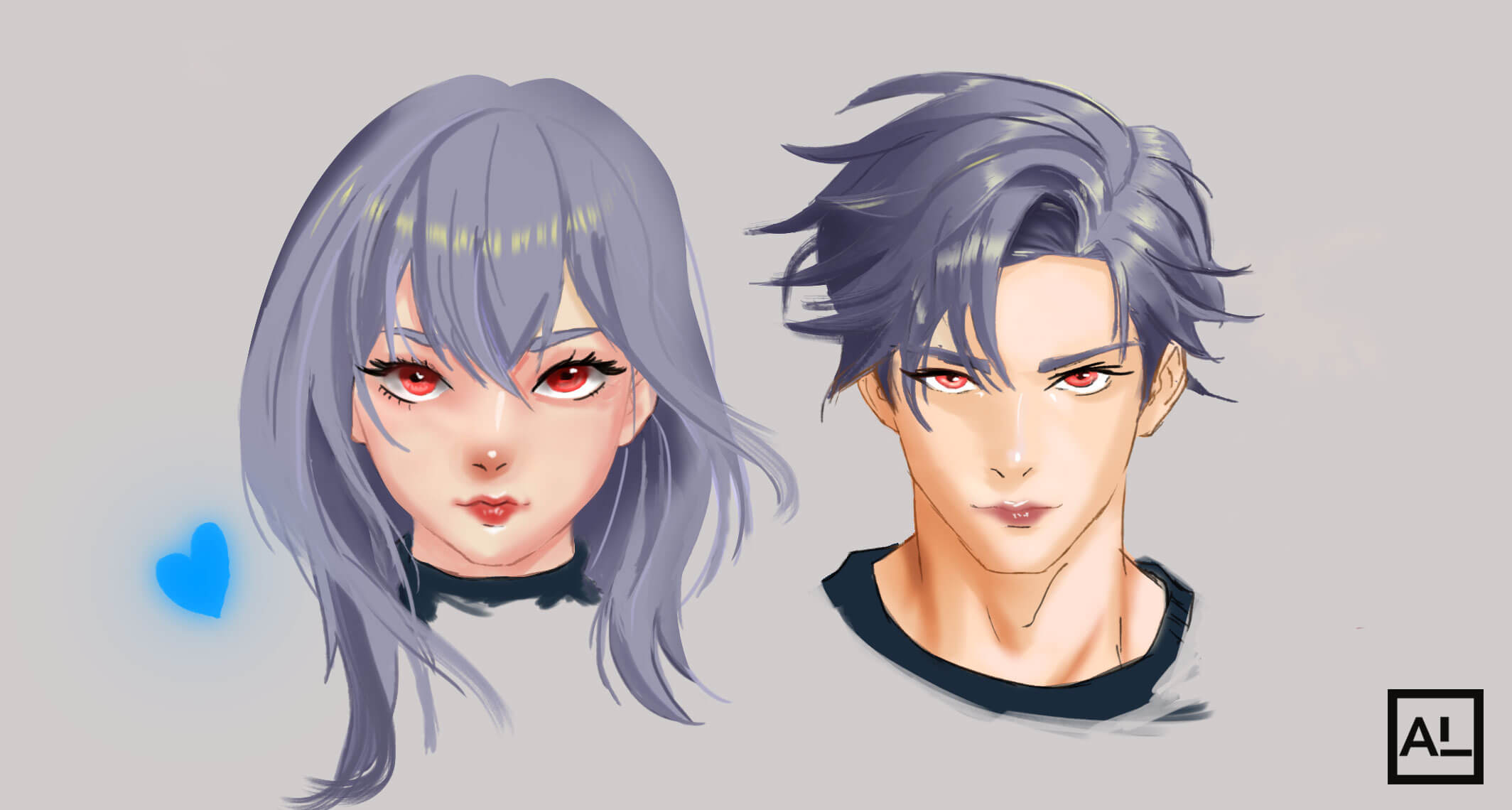At first glance, anime hair might look simple. But once you try to draw it, you realize it’s one of the trickiest parts of character design. Hair isn’t just decoration, it’s personality. A long, flowing style can suggest elegance, while messy spikes can signal energy or rebellion. Even color alone can completely change how we read a character.
This guide pulls together the best tips from tutorials, practice, and personal trial-and-error. Think of it as a mix of structure and shortcuts, a practical approach to drawing and shading anime hair, whether you’re sketching on paper or working digitally.
Step 1: Use References (Always)
If you want believable hair, you need references. Real hairstyles, anime art, and even photo studies help you understand texture, flow, and variety.
- Pinterest, Instagram, and Artstation are gold mines.
- Study different types: straight, wavy, curly, buns, spikes.
- Remember: using references isn’t cheating — it’s how artists learn accuracy.
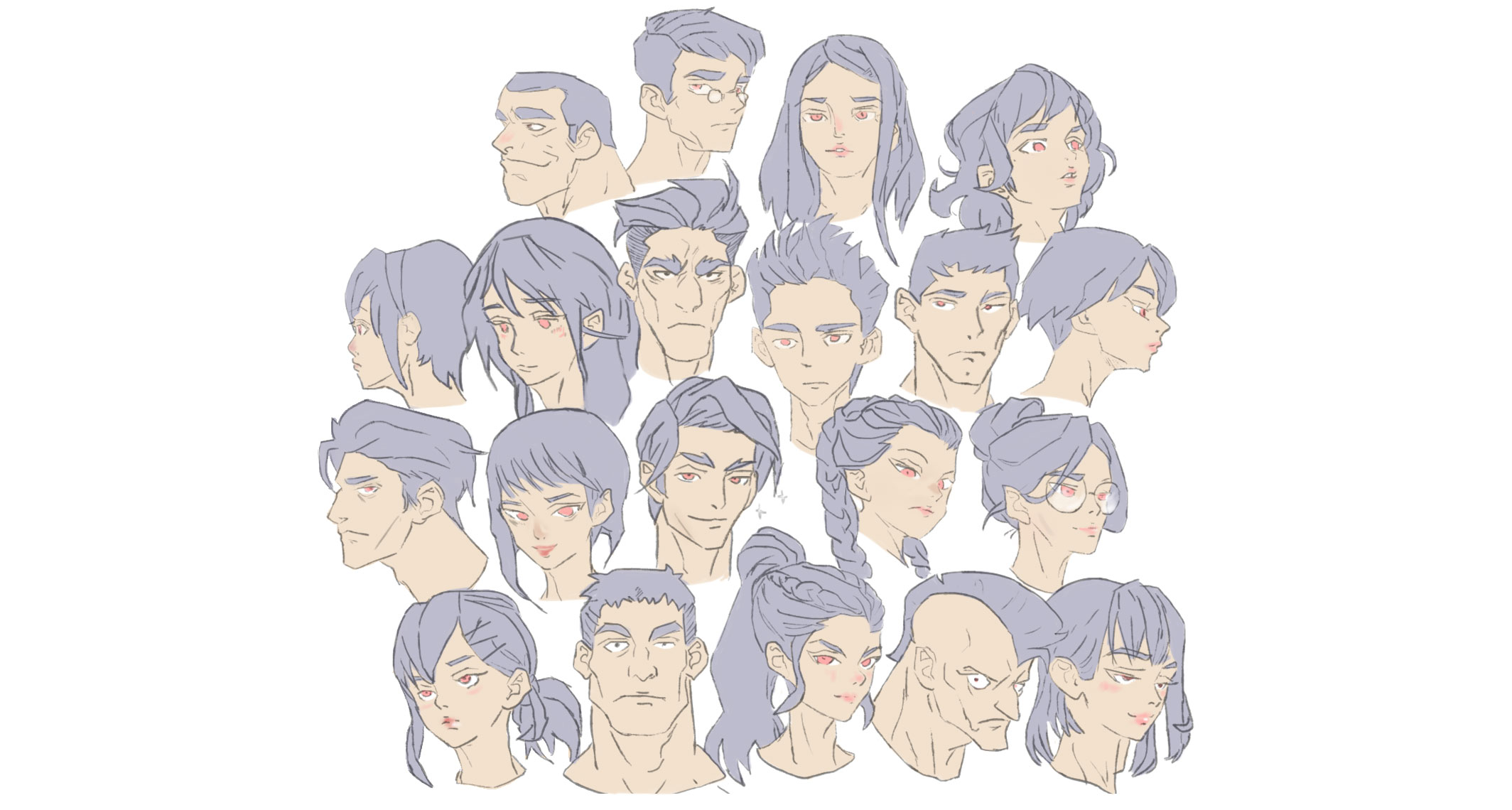
Step 2: Start With the Hairline
Before anything else, place the hairline. This is your foundation.
Using the Loomis method for head construction, the hairline usually sits about the same distance from the eyebrows as the eyebrows are from the nose. Everyone’s a little different, but that’s your ballpark.
Don’t overthink it — just avoid placing it too high (instant forehead jokes) or too low (helmet mode).
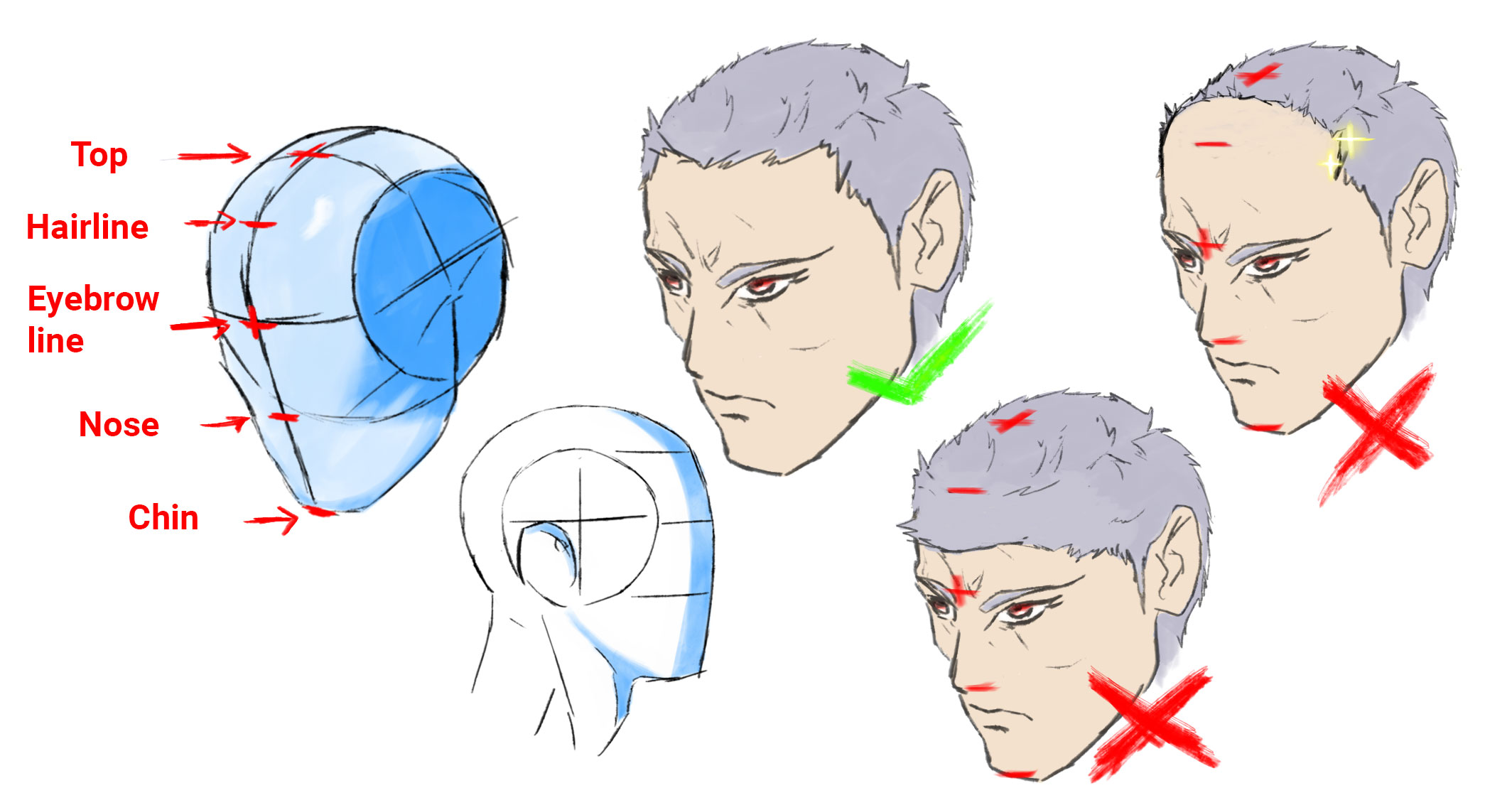
Step 3: Think in Shapes and Ribbons
Anime hair isn’t drawn strand by strand. Instead, it’s built in clumps and sections. Divide the hair into front (bangs), sides, and back/top, then imagine it wrapping around the skull.
Here’s the trick: don’t think of hair as “hair.” Think of it as ribbons twisting in space. Ribbons give you flow, rhythm, and structure. Narrow the tips, overlap a few, and you already have believable strands.
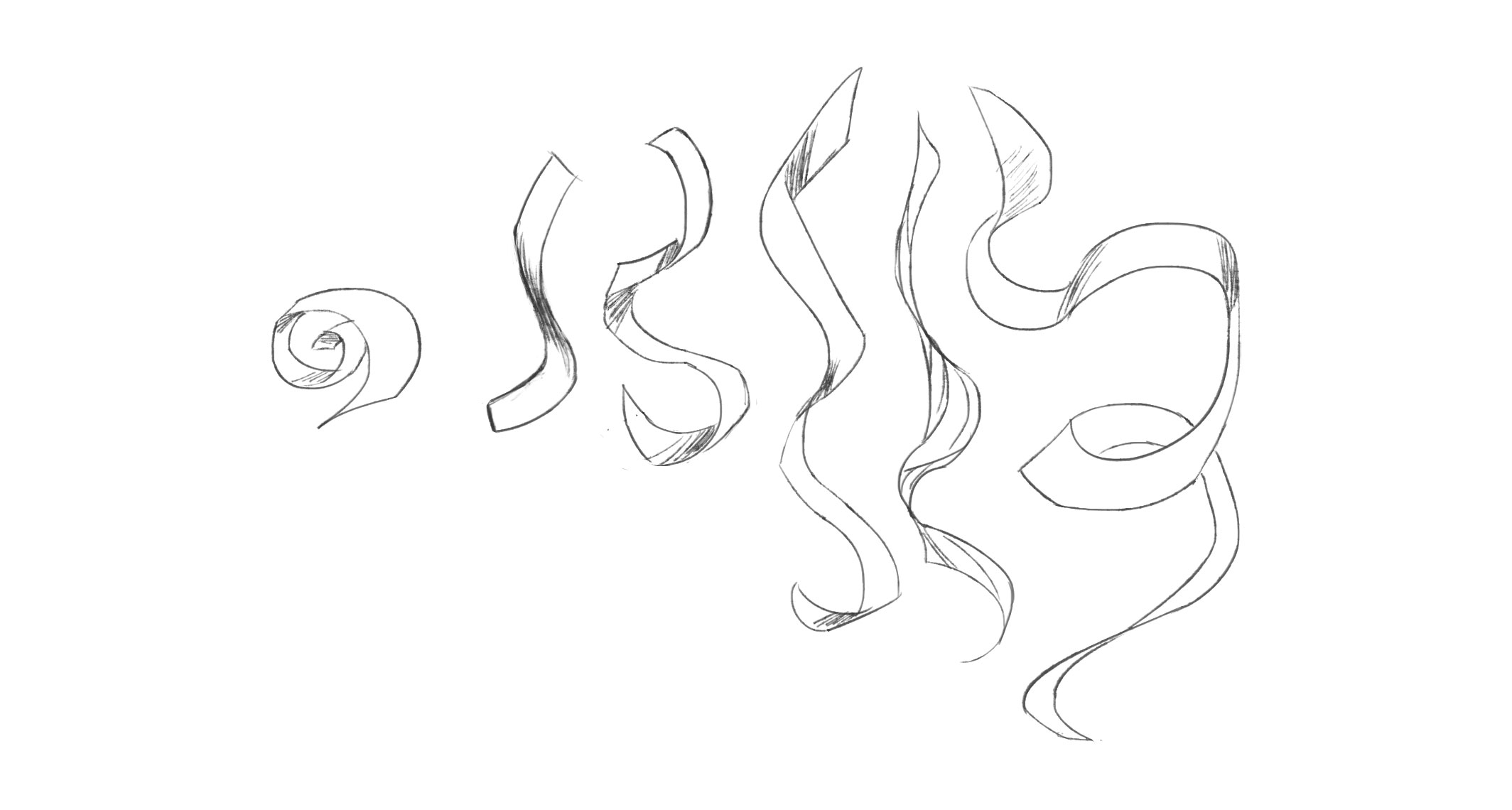
Step 4: Define Structure With Parting and Bangs
The parting line organizes everything. Middle, side, zig-zag — it doesn’t matter, but once you place it, all ribbons flow naturally.
Bangs can also add personality: sharp hime cuts, messy tufts, or soft curves. Just give them direction (up, down, left, right) and keep them consistent with the rest of the style.
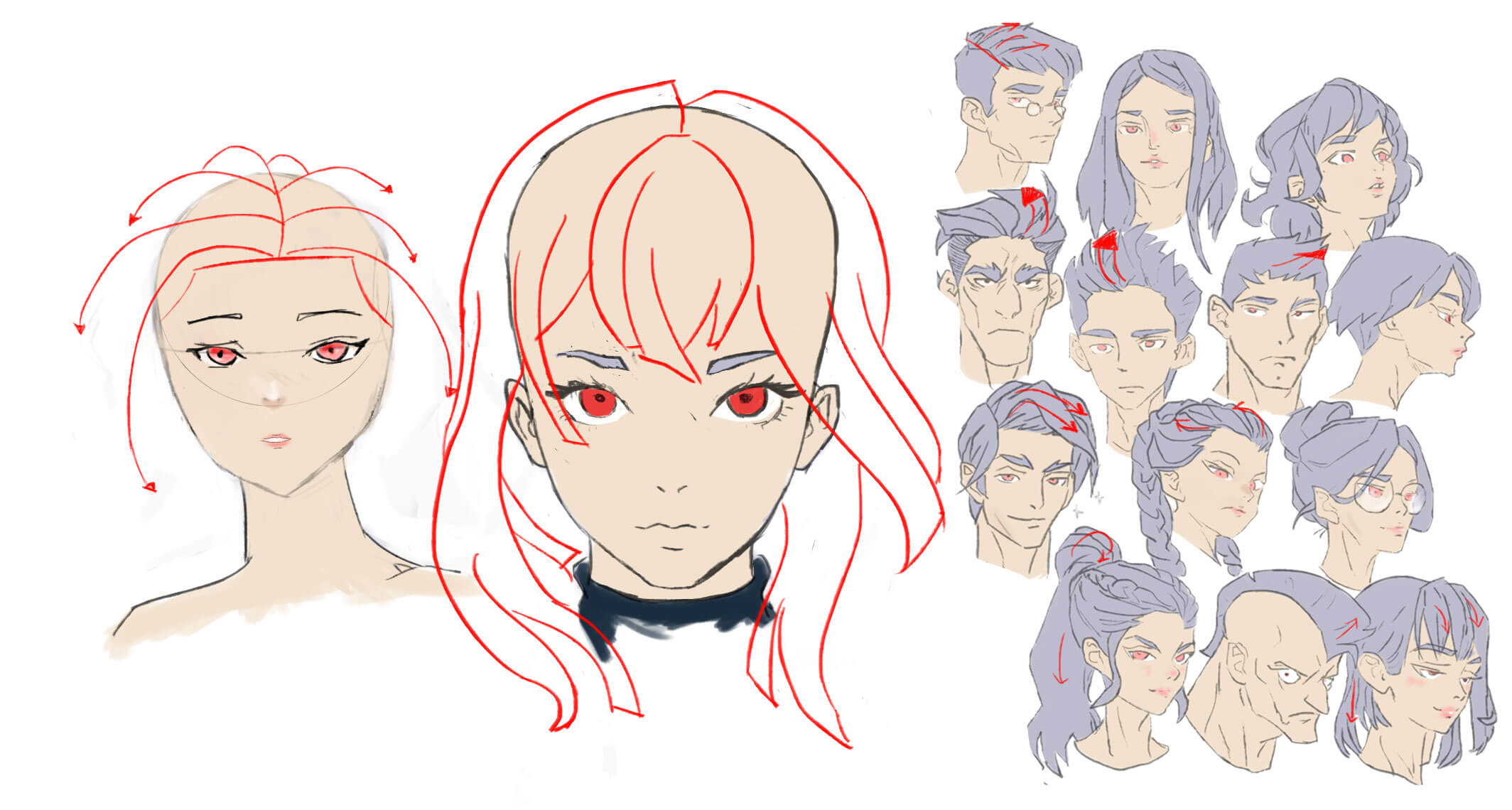
Step 5: Sketch the Flow
Flow is what makes anime hair feel alive.
- Use long, smooth S-curves for natural strands.
- For waves, draw tighter S-curves. For curls, use loops.
- Vary clump sizes so it doesn’t look too uniform.
- Avoid short, scratchy strokes — they kill the rhythm.
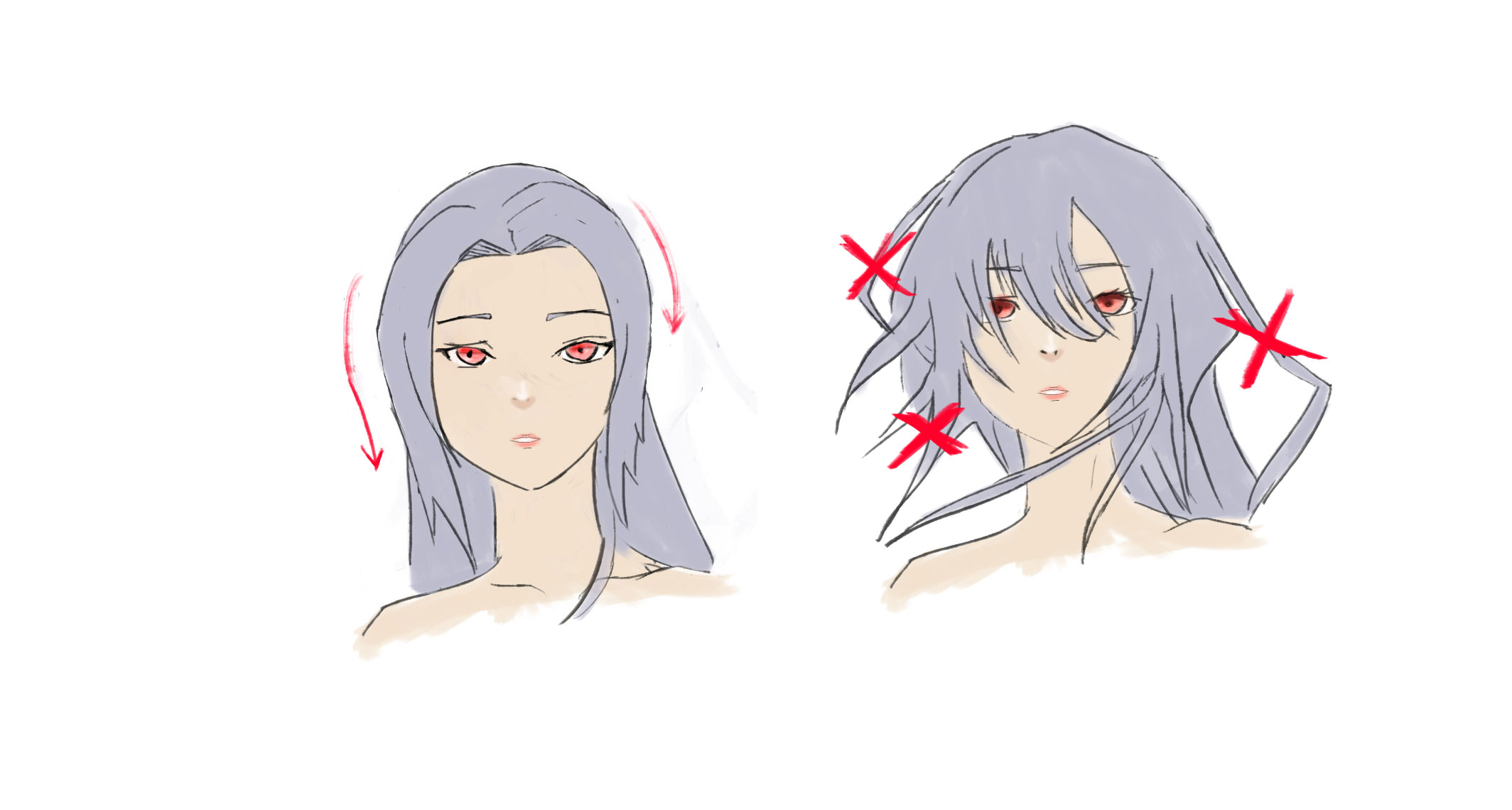
Step 6: Shade With Light in Mind
Lighting defines hair more than line art does.
- Pick your light source before shading.
- Start with a darker shade of the base color.
- In digital art, try Multiply for shadows, Add (Glow) for highlights.
- Mix surrounding colors so the hair feels part of the scene, not pasted on.
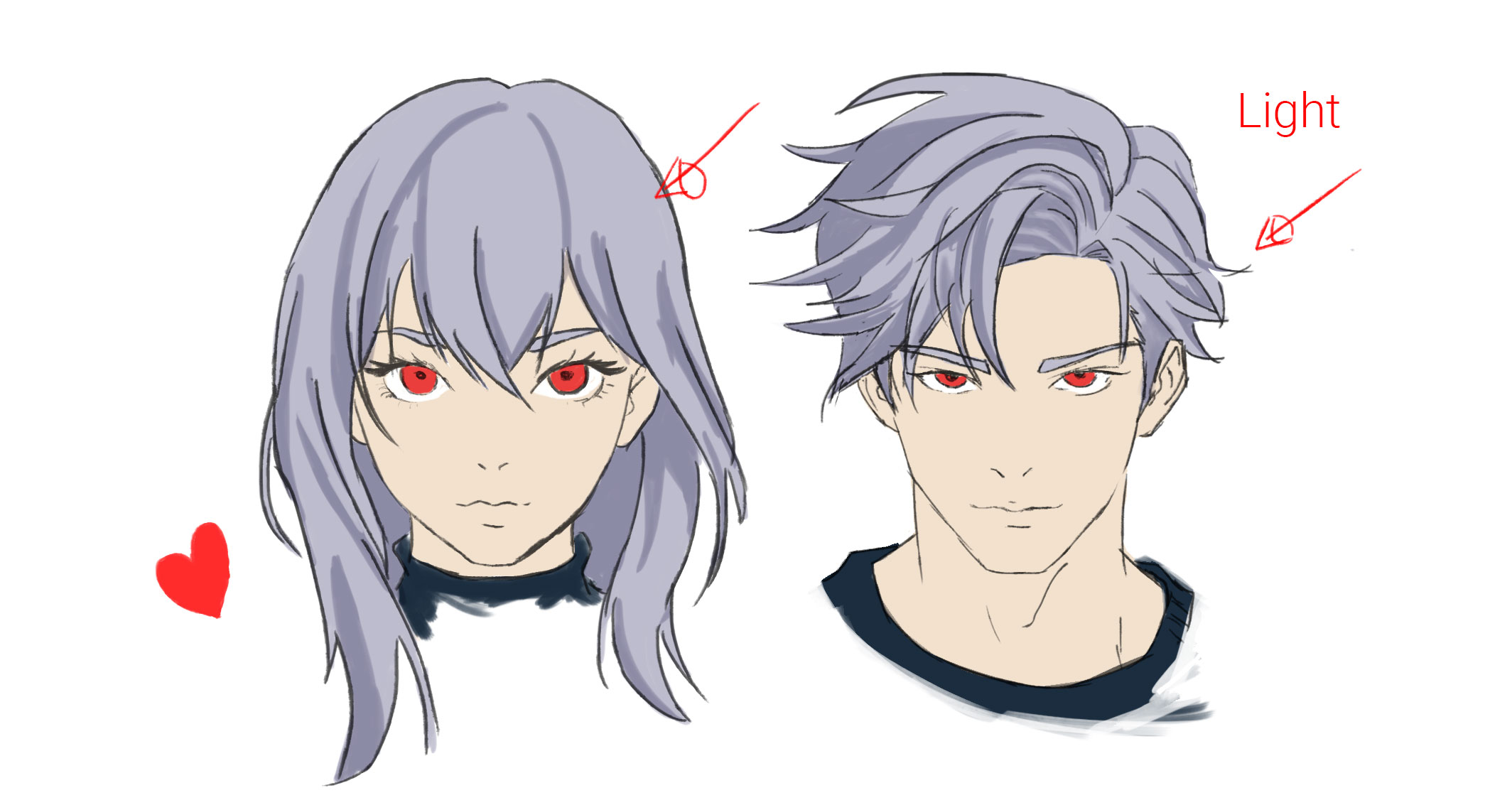
Step 7: Add Highlights and Details
Highlights give anime hair its signature shine.
- Try streaks, blobs, or sharp triangles.
- Airbrush soft skin tones under bangs for transparency.
- Add a few stray strands so the hair doesn’t look like a helmet.
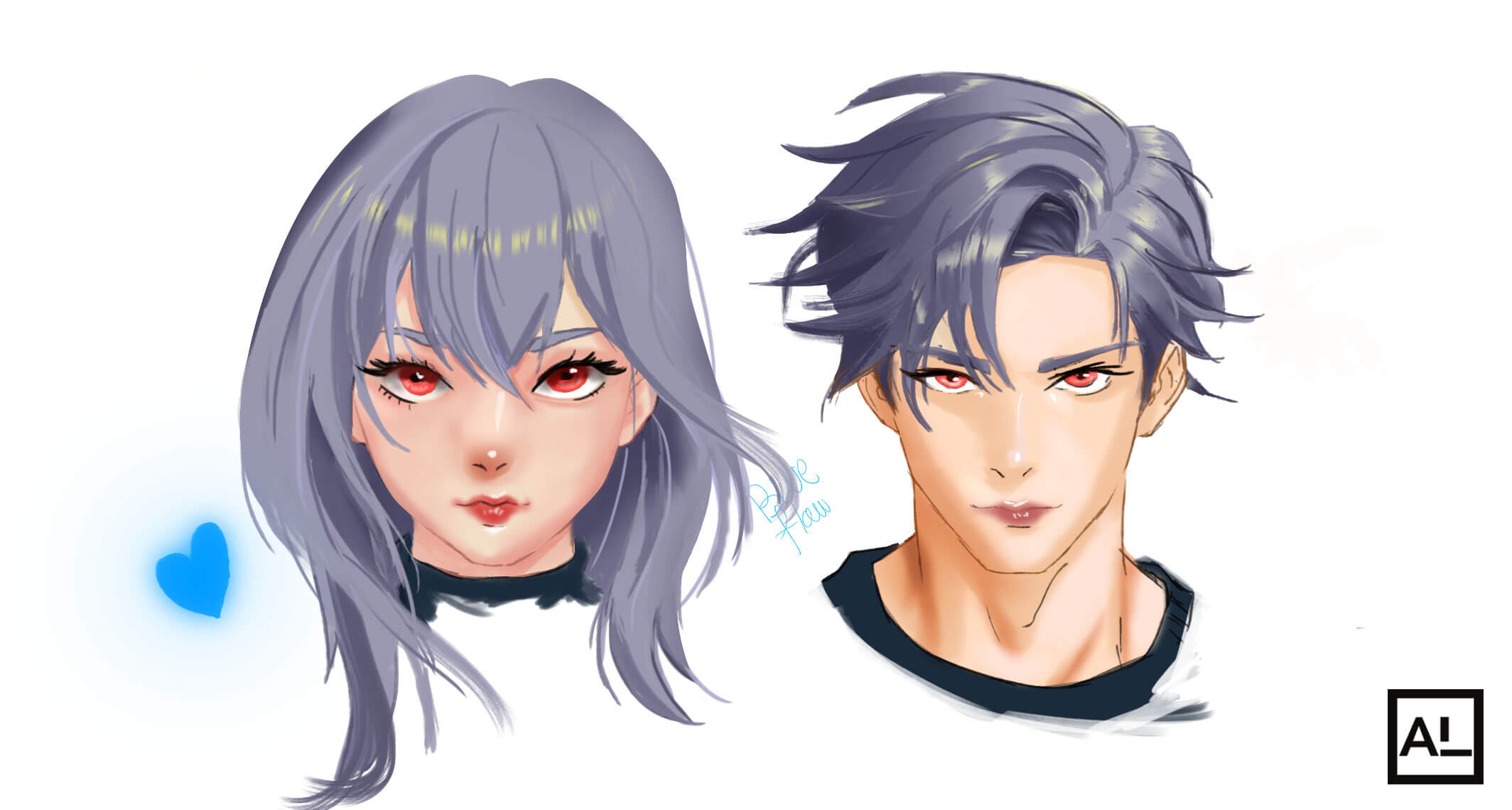
Shape Language and Personality
Good hairstyles aren’t random — they follow a shape language.
- Sharp points = edgy, dangerous, high-energy.
- Round, soft curves = kind, bubbly, or calm.
- Straight and sleek = disciplined or elegant.
Match the silhouette to the character’s personality, and the design instantly feels stronger.
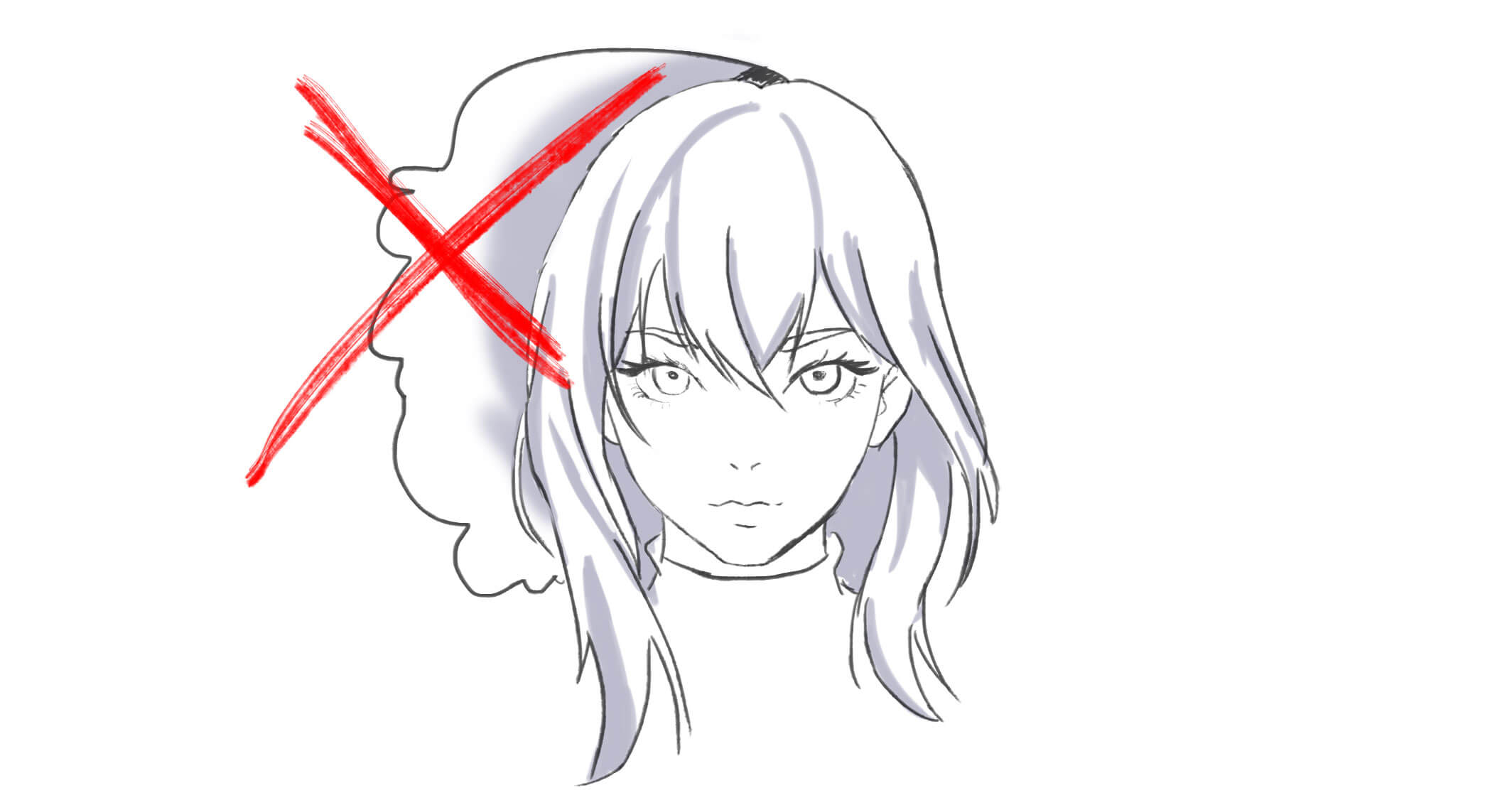
Less Lines, More Suggestion
The biggest mistake? Drawing every strand. That just makes a messy helmet.
Focus detail where it matters: at the roots and tips. Let the middle fade, and let the brain fill in the blanks. Less is more.
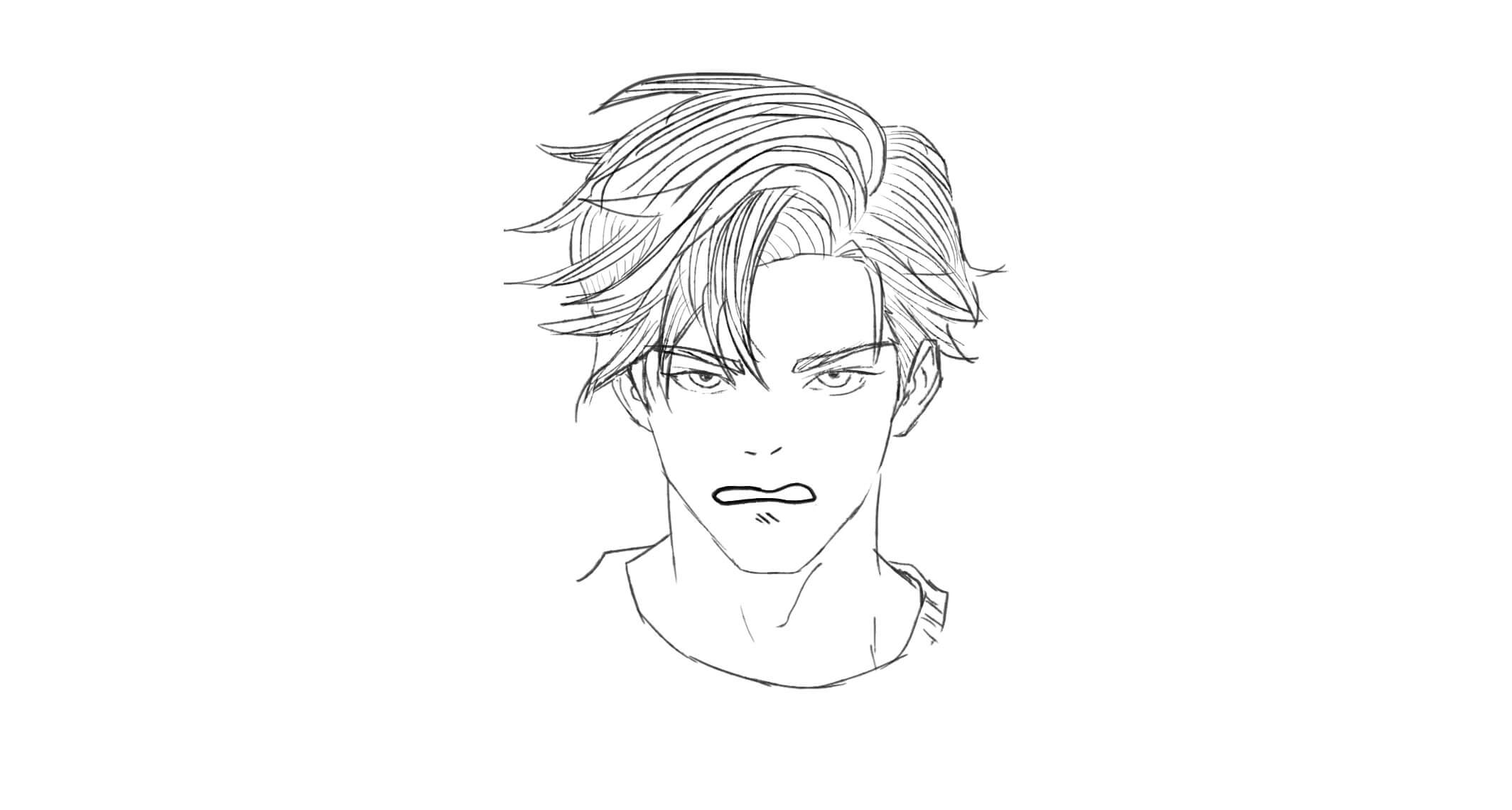
Popular Anime Hairstyles to Practice
Here are a few styles that train different skills:
- Long straight hair – smooth clumps.
- Short messy hair – uneven spikes for rhythm.
- Hime cut – flat ends + neat bangs.
- Ponytails/twin-tails – curves with bounce.
- Curly hair – spirals layered for depth.
- Buns – round forms with inner texture.
👉 Pro tip: Mix elements from different styles to invent your own designs.
Male vs. Female Anime Hair
Traditionally:
- Male = shorter, spikier, more angular.
- Female = longer, flowing, smoother curves.
But rules are meant to be bent. A girl with a cropped cut or a boy with waist-length hair can stand out more than clichés.
Final Thoughts
Drawing anime hair comes down to three essentials:
- Build structure (head + hairline + parting).
- Use clumps and flow, not strands.
- Shape with light and highlights.
Most importantly? Practice. Redraw the same character with different hairstyles, or test one hairstyle under different lighting. Each variation sharpens your skills and helps you discover your own style.
Discover More Posts
Keep exploring stories, insights, and creative notes from my journey as an artist. Check out the latest blog entries and find topics that inspire your own process.
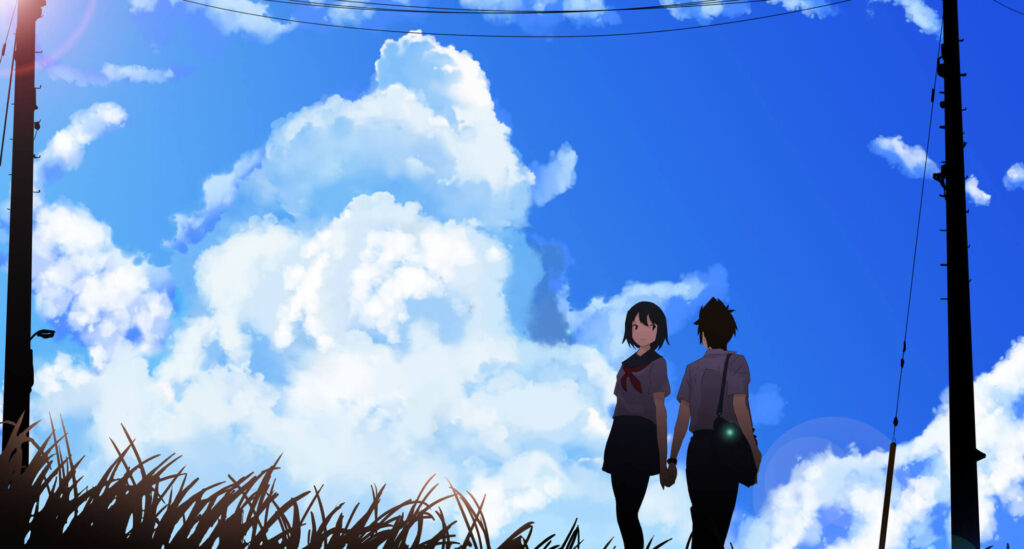
How to Draw Stunning Anime Clouds
Learn to draw anime-style clouds with this easy, step-by-step cloud tutorial. You’ll pick up tips on shapes, color, and composition—plus get free cloud brushes to use in your own art.
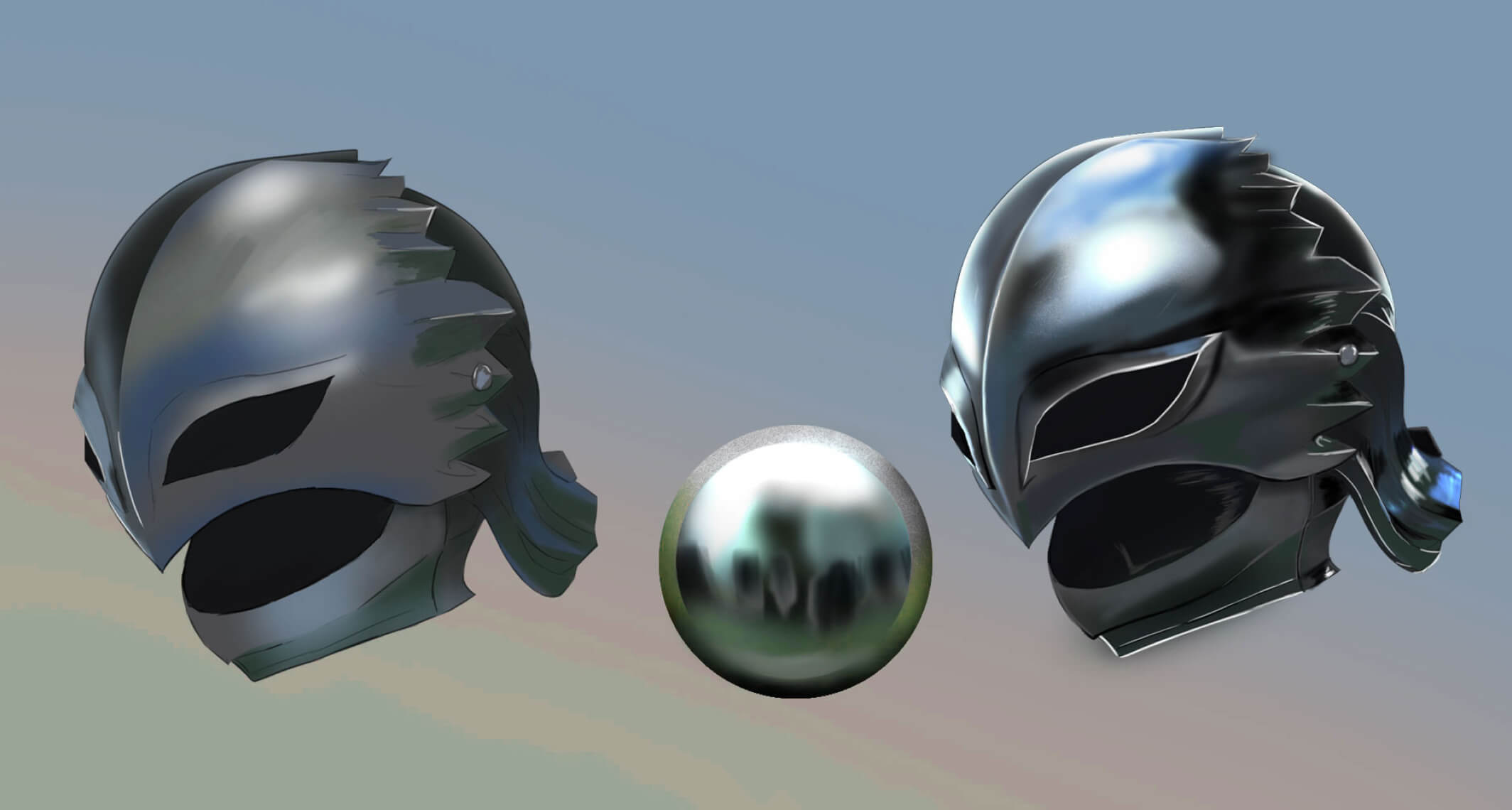
How to Paint Realistic Metal
Learn how to paint realistic metal with this step-by-step guide. From base colors to to lighting and reflections, get practical tips for your artwork shine, literally.
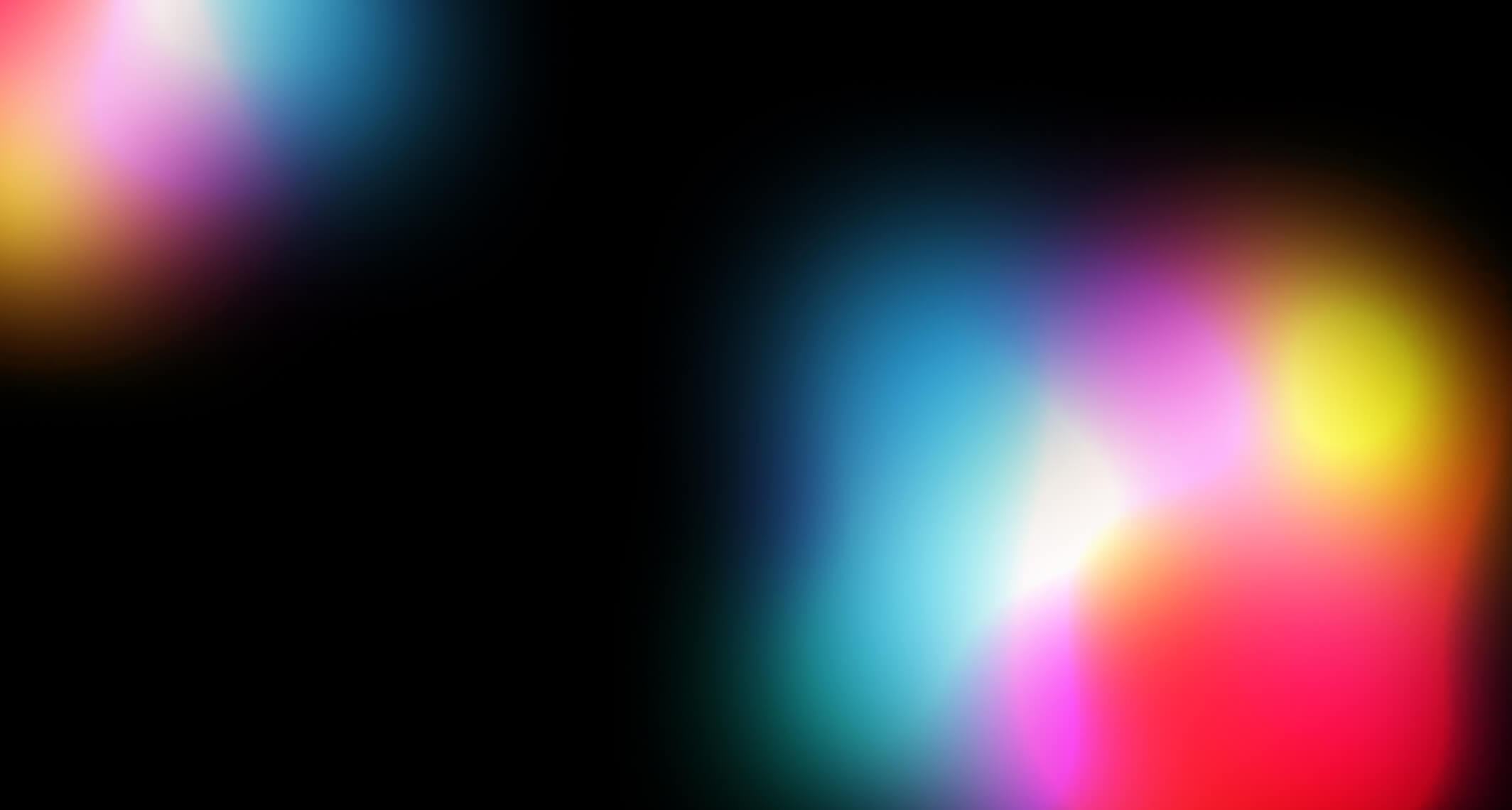
Color Theory Made Simple: A guide for Beginner Artist
New to Digital painting? This beginner-friendly guide breaks down hue, value, saturation, color harmonies, and practical tips to help you choose better palettes and level up your art.

